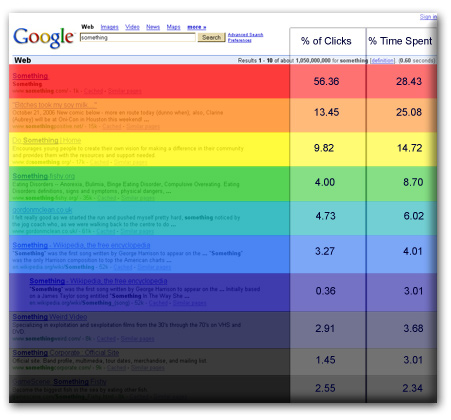Understanding Keyword Search Tools
Article Writing Is Tough Work!
Alright ... so it doesn't give one the mental image of someone perspiring as they drive a stake with a sledgehammer, but make no mistake ... it's a lot of work; and anything available to make work easier is called ... technology! Which is what this article is all about ... the latest keyword research tool technologies on the market.
However, before we go into our comparisons we need to realize what it is we expect to find with a great keyword research tool, so we can know for sure when we have found a good one. After all ... if a tool does everything except what we need it to, then that tool is useless for the purpose we have in mind.

Everyone Wants To Be Noticed
It's enough to write a great article and let people find it, right?
Maybe if yours is one of several thousand documents on the internet, but we both already know that it isn't. Even as I write this article, several hundred people throughout the world are writing an article about the same thing - that's why I want my article to be better and to be more visible. I won't accept writing all of this to have no one read it - and you should feel the same way about your own article!
So, how does one make their article more visible?
Well, the simplest of means is targeted placement, which is placing your articles where they will get the most notice. Fishing articles can get placed on fishing sites, writing articles on writing sites ... and on and on.
Seems simple enough, eh? But it's not. For, you see, there are hundreds of websites dedicated to fishing and to writing. To have a chance at the bigger share of the traffic you would need to write a separate article for each of them - a very time-consuming process.
If you want more traffic you'll need to tap into it at the source, siphoning it before it goes elsewhere. To do this, you need to tap directly into the power of Google!
The Magic Act
Many magicians eke out a living by making themselves, or other object, disappear. It's a great parlor trick that wins many adoring fans, provided the magician can keep upping the stakes by removing bigger things from the audiences view without them knowing how it's done.
The sad thing is ... we as article writers are some of the greatest magicians the world has ever known. We write some of the greatest articles, only to see them disappear into obscurity. Of course, we don't do this on purpose - we do this because no one has ever taught us how to stand out and be noticed.
Throughout this article you will learn to do just that, and at no cost to yourself. After all, do you write to get paid or do you pay to get printed? Hopefully, you are getting paid for your writings. If not, this article could help. Or, if you are one of those intrepid souls that writes to get noticed, this article could help provide you with more notoriety. Either way, we can all profit from some knowledge - and so you shall! Read on!

Helping 'Them' Find 'You'
Forget everything you were ever taught about directing internet traffic to your site. While some of it might have been right, much of it could have also been wrong. As an empty vessel is easier to fill than a full one, we need to empty our minds of knowledge past.
Okay, now what we've reached a good state to observe new information, you can tell yourself what it is you need to learn from this article.
What's that? I'm supposed to be teaching you? Well, my experience is we learn the best when we teach something to ourselves. As such, I'll throw out the pieces and you can assemble them for yourself. Trust me - this is easier than a puzzle with five pieces. Are you ready?
To Be Seen You Need To Be Visible
It can't be that simple, can it? Well, if you want to go on believing you need to kiss the right frog to get noticed, then by all means ... persevere. However, I am here to tell you that it's far easier (and less gross) than that. To be seen, you only need to realize what does (and what doesn't) make someone noticeable on the internet.
Search engines ... that's where people go to find things, and those who wind up on page one of such search pages get the most notice. Google is currently the champ of the bunch, but Bing and Yahoo have traffic to offer as well. So, how does one become visible on these search engines? By becoming competitive with the right crowd!
Determining The Right Crowd
There's a formula for being visible which goes something like this:
- Number of people watching /Number of competitors standing in the way -
Great! So where do those two numbers come from and what do they have to do with visibility?
Well, the second question is pretty easy to answer ... Close your eyes and envision yourself standing in front of a crowd of people that are watching you, and then imagine your competitors standing in-between you and them. Can you see it?
If you have enough competitors between you and your audience you become invisible. Also, if your audience is too small ... you still won't get noticed. Welcome to the world of keyword research!

What Is Keyword Research?
Keyword research is all about discovering what keywords in your title will drive traffic to your website. Idealistically, you want a keyword that generates at least 3,000 searches a month, with less than 30,000 pages competing with your own.
So, where do these numbers come from?
If you have already read my article on the Google Adwords Keyword Tool then you probably already know that answer. If not, then I recommend bookmarking this page and giving that one a look before continuing on. Trust me, the good stuff you learn there will be doubled by the great stuff I am about to teach you here!
- How To Use Google's Keyword Search Tool
Finding keywords can be a laborious task for hubbers ... and finding tags can be even tougher. This article takes the sting out of the pain by showing you many insider tips to finding great keywords and tags.
So That's It, Right?
Not by a longshot!
I didn't write all of this to introduce an old article. Instead, I wrote it to introduce new information. After all, I just taught you how to find good keywords, but you still need to learn more to find the great ones!
With the information you currently have you can discover keywords to include in the title for your article, and you can google your keyword phrase to see how many competitors you have - it shows up in the upper-right hand corner when you google your phrase as Results 1 - 10 of about 1,010,000 for "great fishing lures", provided "great fishing lures" was the keyword you were interest in.
1,000,000 competitors is a lot over 30,000, which makes this keyword phrase tough to compete with. So, do we continue to fish by hand or do we go out and get ourselves a fishing pole?
As for myself, I went out shopping for fishing poles and found myself a real mice one, but first, we need to learn more about 'total monthly searches' and why we want so many of them. After all, isn't 300 hits to our site better than nothing?
How Does Your Traffic Flow?
If you're like everyone else you struggle to get to the top of the Google ladder, the coveted first spot that receives all of the traffic - or does it? While we might believe every person that googles something will always click on that first link, it's been proven that this just isn't true. In fact, the percentage given is somewhere around 42%. Something must be wrong with the numbers!
Well, think that if you will, but the fact is ... people aren't always interested in the first article on Google and often look past that one to find others. Also, those who click on the first one often click on the second and third one in turn, seeking more information on the topic at hand. So, being number one is great, but finishing in the top 10 is tyoically good enough to gain some traffic. And the further your article strays from the number one spot ... the less traffic it gets.
The chart below shows the results of a study made by Cornell University students where they tracked the eyes of students googling subjects on the internet. As we can see, being first doesn't garner all of the attention and being 7th is worse than being 8th, 9th, or 10th.

Provided you can hit the top 10 you can't promise yourself any more than .3% of the hits. That's not 3 percent, that's three-tenths of a percent. As such, front page on Google should net you at least 11 hits a month. Going from 1st place to 10th place, here's the hits you can expect each month from 3000 searches:
- 1691
- 403
- 295
- 120
- 142
- 98
- 11
- 87
- 43
- 76
As you can see, spot seven is the blackhole on the front page and all others generate some decent traffic. That's why it's so important to lessen the competition to get higher up the page - and that's done by way of advanced keyword research.
What Is Advanced Keyword Research?
Advanced keyword research is having a program that puts all of the information in front of you to allow you to make informed decisions in minutes that could otherwise take days or weeks to assemble. There's only so many hours in the day to write or do research - do too much of one and you'll find yourself with no time to do the other. This is the reason most writers don't delve deeply into keyword research - they simply don't have the time to do so!
Relax ... I'm not going to tell you that you need to make time. Instead, I'm going to show you two products that will help create time for you. Yes, these products cost money, but all good software does. The trick is deciding if it's worth the investment to save time and money. As such, we'll look at both products to determine their worth.
Now, if you're happy with what you've already learned then there is no need to move forward, but if you're looking to get your articles noticed more or to make some money from Adsense then you'll want to read my in-depth review on about each product.
- Market Samarai - The Next Generation In Keyword Research
Market Samarai is an advanced keyword research tool produced by Noble Samarai, which is based out of Australia. This product is still in beta, but it already packs a powerful punch! To add to the flavor, the company offers many videos on their websit








